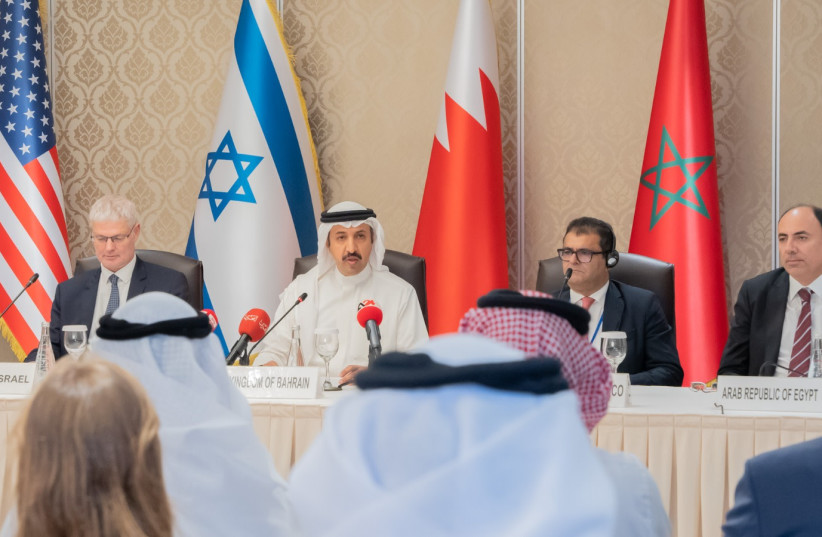On This Day: Israel, Arab nations sign historic Abraham Accords agreement
On this day, September 15th, 2020, Israel, the United Arab Emirates (UAE), and Bahrain signed the US-mediated normalization deal, dubbed the Abraham Accords.
The signing of the deal indicated a significant step forward in Israel’s journey to making peace with its Arab neighbors.
With the signing of the Accords, Israel doubled the number of Arab nations with which it had full diplomatic relations. The UAE and Bahrain joined Egypt, which signed a peace treaty with Israel in March of 1979, and Jordan, which signed a peace treaty with Israel in October of 1994.
Later, more countries would go on to join the Abraham Accords. The following month, on October 23, 2020, Israel and Sudan established diplomatic ties.
Then, two months later on December 22, 2020, Israel and Morocco established diplomatic relations in Rabat.

The Abraham Accords strives to build bridges in the Middle East
The Abraham Accords Declaration, which is published on the US State Department website, states, that the signatories “recognize the importance of maintaining and strengthening peace in the Middle East and around the world based on mutual understanding and coexistence, as well as respect for human dignity and freedom, including religious freedom.”
It goes on to envision a future without radicalization, where peace, security, and prosperity are a reality in the Middle East.
In commemoration of the signing of the Accords, Matthew Miller, the spokesperson for the US State Department, released a statement highlighting the significance of the Accords and reaffirming the US’s commitment to working to expand the agreement.
“Tomorrow marks the third anniversary of the signing of the historic Abraham Accords,” Miller wrote. “Normalization between our allies in the region has been transformational for Israel, the United Arab Emirates, Bahrain, and Morocco. On this anniversary we recommit ourselves to the goal of expanding and deepening opportunities for integration represented by the Accords. The United States remains steadfast in its support for a more peaceful, secure, and prosperous Middle East.”
Since the Abraham Accords were signed, Israel and its new Arab partners have worked to deepen and solidify their relations through diplomatic and economic exchanges.
For instance, in June, Israel and Morocco signed another agreement aimed at cooperation on environmental protection and climate change-related matters.
Additionally, in July, Israel participated in “the African Lion 2023” international military exercise in Morocco.
Also in July, the Jerusalem Post highlighted a report from the Abraham Accords Peace Institute that found that trade between Israel and its Abraham Accords partners had seen a sharp increase in 2022.
A new generation of peace
A joint press release from ISRAEL-is and the American Jewish Committee (AJC) on Monday highlighted a coalition of young Israelis, Emiratis, Bahrainis, and Moroccans who met in Washington, DC to honor the three-year anniversary of the Accords.
The representatives from the coalition aimed to develop initiatives geared towards environmental sustainability and tourism.
“I think this experience represents imagination, richness, hope, connections, and solidarity,” said Zainab Al Ali, a young executive from the United Arab Emirates. “When we come together and work towards the Accords, we take one more step towards a better future.”
Further, in recent weeks and months, Israel and Saudi Arabia have made public comments regarding the possibility of the Saudis joining the Accords, as well as what may be a prerequisite of such an agreement taking place.





Comments are closed.